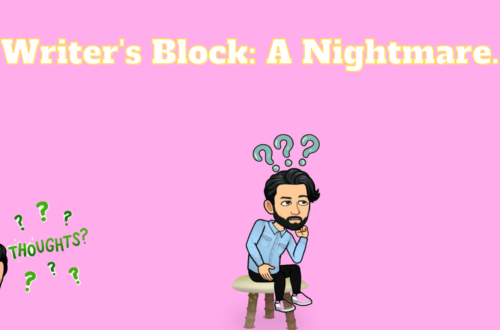
Being Depressed On Social Media.
Believe it or not, social media is a root cause of depression today.
There is growing proof that social media use and depression are related. In considerable research, it was discovered that teenage and young adult users who spent the most time on Instagram, Facebook, and other platforms had a significantly greater rate of reported depression than those who did not (from 13 to 66 percent).
These studies point to a correlation rather than a cause. But it’s important to consider how social media might be harming teenagers and young adults.
The fact that an increase in depression coincided with an increase in smartphone use is one reason the association looks more than a coincidence.
According to 2017 research, more than 500,000 8th- to 12th-graders had symptoms of depression. The percentage of students reporting severe depression rose by 33% between 2010 and 2015. The suicide rate for girls in that age range increased by 65%.
Smartphones were first released in 2007; by 2015, 92% of teenagers and young adults had one. Even when matched year by year, the growth in depression symptoms during that time is associated with smartphone adoption.
In the same time frame, there was a substantial increase in reports of students seeking counseling in colleges and universities, primarily for sadness and anxiety. Visitation increased 30% between 2010 and 2015.
How Depression is Linked to Social Media.
Compared to earlier generations, one of the most significant distinctions in today’s teenagers’ and young adults’ lives is how much time they spend communicating with their peers online, primarily through social media.
According to some specialists, the rise in depressive disorders is proof that the interactions people make online through social media are less emotionally fulfilling and make them feel socially isolated.
The benefits of social engagement are lessened the less deeply and empathically linked you are to other people. You are less likely to feel connected, which we all need, the more shallow it is.
Girls who use social media heavily but maintain a high amount of in-person social connection are an exception to the depressive correlation. According to the Twenge study, females who often engage offline and online don’t see an increase in depression symptoms like those who are contactless.
Teenagers who are geographically isolated or don’t feel welcomed in their schools and local communities may find it difficult to interact with classmates offline. Electronic connections could save children’s lives.
HOW SOCIAL MEDIA CAUSES DEPRESSION
1. Self-Esteem
Another explanation for the rise in depression is the decline in self-esteem, particularly among teenage girls, brought on by unfavorable comparisons to carefully crafted pictures of individuals who appear to be prettier, thinner, more popular, and wealthier than themselves.
In fact, research reveals that the image-centric Instagram is the website where young people most frequently report experiencing anxiety, despair, and body image concerns.
2. DECLINES HEALTHY ACTIVITIES
Teenagers’ lack of physical activity and activities that give them a feeling of success, such as learning new skills and honing their talents, may be another possible cause of depression when using social media.
You receive a small dopamine boost anytime you get a notification, a like on a picture, or a follow request, but kids who spend a lot of time on devices don’t get much in exchange to make them feel good about themselves. But those goods are not just unsatisfying but also addictive.
3. Interrupts Concentration
The act of doing homework and other duties that need focus is another thing that social media disrupts. Teenagers now frequently interact with friends on social media while they are studying. They take great satisfaction in their multitasking ability, but research indicates that it hinders learning and performance.
4. Disrupts Sleep Schedule
Social media use may have an indirect effect on mood in some cases. For instance, sleep deprivation, which can be caused by or made worse by social media, is one of the most prevalent factors in depression in teenagers.
These are the symptoms that lead to depression lead to social media. If you are there, you should seek medical attention, but if you are not, here are some tips to ignore going through the authoritarian state.
Guidelines for responsible social media use:
Seek balance-Maintain a healthy balance by ensuring your children participate in offline social interactions and have time for activities that foster identity and self-confidence.
Disable notifications: App developers are becoming more aggressive with notifications to convince consumers to stop what they are doing and spend all their time on their phones. Stop letting them.
Watch out for girls who are more susceptible to depression: Girls who are going through a difficult period or experiencing extraordinary stress should be watched out for. When confidence is low, social media’s negative consequences may be more noticeable.
Look out for good things in social media and ignore bad- Teach teens to use social media mindfully by encouraging them to be honest with themselves about how their time on the platform makes them feel and to avoid interactions that make them feel stressed or unhappy.
Exemplify moderation and balance in your media consumption: Set an example by giving up media so you can spend quality time with your family, including phone-free dinners and other occasions. Though they may rebel, kids will nonetheless reap the rewards.
Pre-sleep phone-free period -Enforce a rule prohibiting smartphones in bedrooms after a set time and during the night. Set a retro alarm clock to wake you up.




